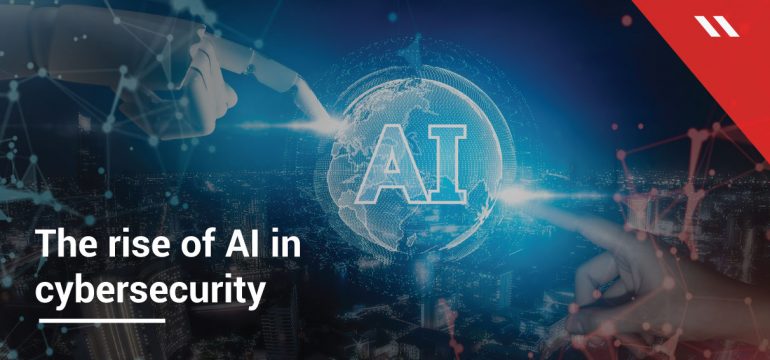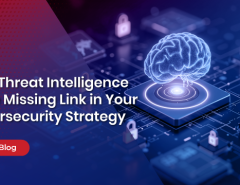The usage of artificial intelligence (AI) promises to be a game-changer for cybersecurity. The threat of cyber attacks and their consequences continue to loom large – in India, a report found that 37% of companies experienced a downtime of over 9 hours after their most severe breach while councils in the United Kingdom faced a staggering 800 cyber attacks per hour in 2019.
For frazzled Chief Information Security Officers (CISOs) trying to find ways to manage a situation that is rapidly getting more unprecedented by the year, artificial intelligence offers some exciting solutions. Through AI-based solutions, enterprises will be able to improve threat intelligence, protection and detection at a much faster rate than before. Crucially, AI will enable this by reducing the requirement of having specialized cybersecurity experts within the enterprise – a factor which will be welcomed by an industry which faces a rapid skill shortage in this domain.
From a reactionary to a proactive approach
Traditionally, enterprises deal with cybersecurity through reactionary methods. The focus is on a loss-protection approach. AI can help to flip this notion by offering predictive cyber protection. Through the use of deep learning and analytics, enterprises can gain an understanding of future risks and an advance understanding of potential losses.
How does this work? AI-based cyber protection eschews the established signature-based detection approach and identifies vulnerabilities before an attack. Through self-learning techniques, AI can scan huge amounts of data of various types to make predictions on vulnerabilities and attacks. Irregularities in data and traffic are immediately identified and flagged, leading to preemptive measures taken immediately.
An AI-based cybersecurity approach can benefit enterprises in various ways including:
Reduction in costs to fight attacks
AI can help organizations cut down on the current costs, both on a monetary and a time scale, involved in fighting data breaches. Since identified threat patterns can be reused and replicated, it helps achieve cost reductions, ultimately benefitting the bottom line.
Better decisions
The predictive analytics used by AI solutions can generate some data points which will help decision-makers understand the enterprise much better along with threat and risk assessments. This will help the organization make better decisions in the long run.
Using automation to increase efficiency
Currently, cyber experts have to tackle the labour-intensive process of structured and unstructured data which is an error-prone process. Automation will enable systems to do this work at a much faster rate than human beings in a process that continually improves. This will help an enterprise’s cyber analysts spend more time on understanding the findings and help in overall efficiency.
Immediate responses
AI-based cybersecurity solutions can respond, reply and take action against a threat attack in a matter of seconds. This is an extremely useful benefit for enterprises who can take hours, if not days, to detect and even respond to cyber attacks.
The world is increasingly embracing an AI-based approach to fight cybercrime. A 2019 Ponemon survey observed that 79% of respondents from 1,400 IT and IT security practitioners across the UK, US and APAC were in organizations which currently used or planned to use automation within the next three years. These respondents also said that log analysis would be the most common type of security activity that would be automated in the next three years, followed by malware analysis and threat hunting.
Our vision has driven us to rapidly integrate Artificial Intelligence in our entire product suite. GoDeep.AI which is our proprietary AI-powered malware hunting technology has furthered our already superior enterprise cybersecurity products.




